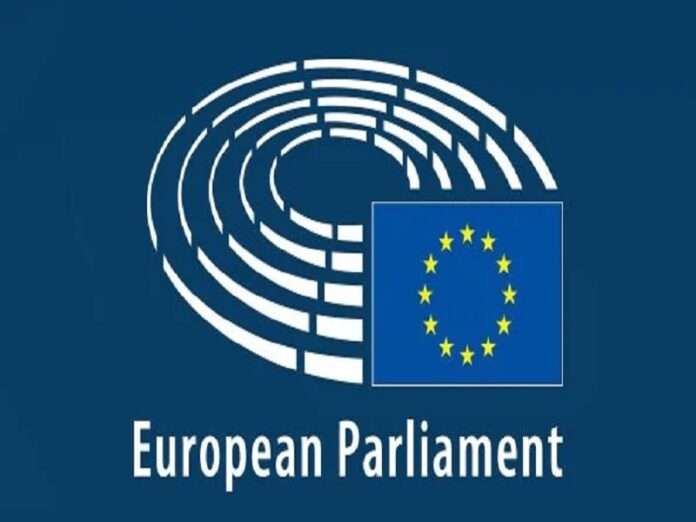The European Parliament just passed a non-binding resolution condemning Azerbaijan for last month’s anti-terrorist operation that successfully restored the state’s writ over the entirety of Karabakh. A summary of its contents can be read here while the full 10-page document is available here. It basically calls for targeted sanctions against Azeri officials and a full reassessment of the EU’s relations with that country. These demands speak volumes about the bloc’s regional strategy.
For starters, the parliamentarians’ hostility towards Azerbaijan contradicts their commitment to the West’s so-called “rules-based order” since Baku didn’t violate international law. Their reaction therefore adds credence to claims that this concept is actually all about the arbitrary implementation of double standards designed to give the West an edge in any given situation. In this particular one, influential European policymakers believe that it’s to their bloc’s benefit to fearmonger about “ethnic cleansing”.
Building upon that observation, their position is obviously biased towards Armenia, which can be attributed to the power of its diaspora lobby and their French patron. In other words, those two successfully manipulated the perceptions of nearly 500 parliamentarians, which is no small feat. France nowadays envisages itself playing a leading role in the region via Armenia, to which end it recently announced that it’ll commence arms sales to that country, thus provoking a sharp riposte from Baku.
These plans also unsettle Russia, which is engaged in a fierce competition with France for influence all across the latter’s neo-colonial “sphere of influence” in the Sahel. In fact, it can even be argued that France’s newfound foray into the South Caucasus is an asymmetrical response of sorts to the strategic gains that Russia has made at its expense in the Sahel. There’s more to it than just that, however, such as France wanting to position itself as the EU’s leader in engaging with some of the bloc’s eastern partners.
This development parallels Germany’s recent power play in Ukraine, which Poland believes to be at its expense. Taken together, the impression is that Germany is leading EU policy towards Eastern Europe while France is doing the same towards the South Caucasus. Both Ukraine and Armenia are wayward Russian partners, the first obviously much more so than the second, which two of the EU’s leading countries are exploiting to make themselves those countries’ patrons.
To that end, they’re employing misleading rhetoric about the “rules-based order” to further appeal to their populations, with Germany lying about Ukraine’s supposedly “democratic” credentials and France inventing an “ethnic cleansing” of Armenians. Another intriguing comparison is that these power plays are being attempted at the expense of the EU’s ties with its important Russian and Azeri energy partners. This shows that ideological and hegemonic motives took precedence over economic pragmatism.
Neither Russia nor Azerbaijan weaponized their role as the bloc’s energy providers, however, which proved their reliability and commitment to apolitical cooperation. Although the EU decoupled from Russia and sanctioned it, both under heavy US pressure, it’s unlikely to do the same to Azerbaijan. That country’s alleged violations of the “rules-based order” concept pale in comparison to Russia’s, plus they need Azerbaijan to help them replace those Russian resources that they voluntarily stopped purchasing.
Moreover, Hungary is an observer to the Organization of Turkic States (OTS), so it’s expected to veto any anti-Azeri sanctions. This factor will help keep France and its Armenian diaspora lobby’s influence somewhat in check, thus preventing it from sliding out of control. Nevertheless, immense damage has already been done to Azeri-EU ties as a result of the latest resolution and France’s planned arms sales to Armenia. Baku now has no doubt that Brussels can’t be trusted.
The same can be said for its Turkish ally, which also condemned the aforesaid resolution out of solidarity with Azerbaijan. This can lead to those two perceiving the EU and possibly even the West as a whole to be their competitor, the view of which could take on civilizational dimensions. It also doesn’t help any that the US just admitted to shooting down a Turkish drone in Syria. The past week was therefore a terrible one for the West’s ties with the Turkic World.
If there’s any silver lining to events, it’s that this proves once and for all that neither Azerbaijan nor Turkiye are the West’s anti-Russian puppets, which debunks the false claims pushed by the Armenian diaspora lobby and their supporters in the Alt-Media Community. No honest member thereof can continue claiming that those two are being exploited by the West to harm Russia’s interests, but anyone who still does inadvertently outs themselves as a pro-Western anti-Russian propagandist.







